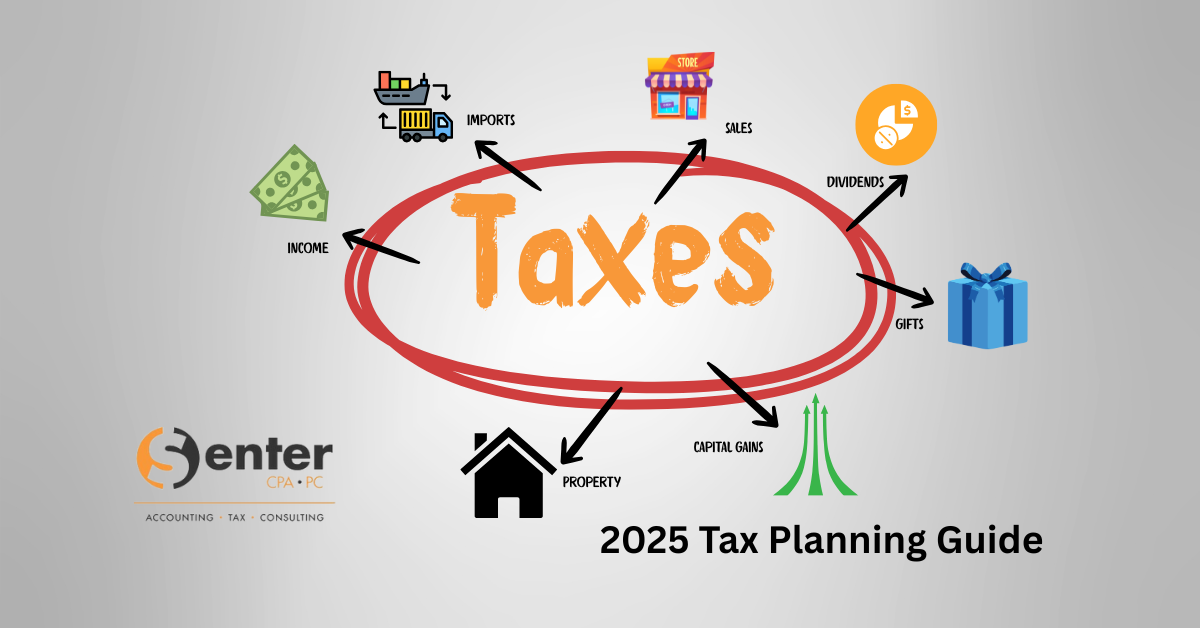An IRS audit takes place when the Internal Revenue Service (IRS) chooses to investigate a taxpayer to ensure that tax laws are being followed. Filing your tax return entirely, accurately and truthfully will reduce the odds of being audited and increase the likelihood of a favorable outcome, in the event that you are audited.
As a seasoned tax and accounting firm, we’ve rounded up seven red flags that could potentially trigger an IRS audit:
Not Reporting All Income: The IRS gets copies of the 1099s and W-2s you receive, so always be sure you report all required income on your 1040 tax return, whether or not you receive a form such as a 1099. The IRS will match reported items to a person’s return. If they see something missing, they will perform, at minimal, a letter audit. The IRS will NOT contact you by phone to initiate the examination process.
Watch the video below for more information relative to audits by mail, providing required documentation and owing additional taxes to the IRS.
Blurred Business Expenses: As you can imagine, the IRS is uncompromising regarding the separation of business and personal expenses. Exceeding the occupational norm of business income and expenses oftentimes will lead to an audit. Be sure to maintain an itemized list of expenses or deductions if reported to the IRS on your tax return.
Foreign Bank Accounts: The Foreign Account Tax Compliance Act has strict reporting requirements for foreign bank accounts. The law requires foreign financial Institutions, and other foreign entities, to report on the assets held by their U.S. account holders and provide information to the IRS.
Reoccurring Losses: Self-employed individuals or businesses who report too many losses on their tax return might attract the attention of the IRS, who may audit you due to a disingenuous attempt to potentially hide or disguise income. Reporting losses while your business appears otherwise stable or successful will cue the IRS to audit you. Be honest when reporting on your tax return, otherwise you are sure to run the risk of an examination.
Deductions: If charitable deductions or credits on your return are disproportionately large compared with your income it could trigger an IRS audit. Be sure to maintain proper documentation and make sure you can validate your contributions. Ultimately, the IRS wants to see that your income-to-donation ratio looks reasonable.
Calculation Errors: Simple human error or even computational error can have a significant impact when it comes to the IRS. Many returns are chosen for audit due to basic mistakes. Before submission, it pays to review your return thoroughly and make sure that it makes mathematical sense. Carefully examine your Adjusted Gross Income, withholding, capitol gains/losses and deductions to avoid these calculation errors.
Vehicle Use: The IRS allows business owners and self-employed individuals to use a standard mileage rate or actual expense method. For 2020 business driving is 57.5 cents per mile. To determine your vehicle use for reporting purposes to the IRS, you will need two numbers for each business vehicle: the total number of miles driven for the business and the mileage rate for the year. Once you add up the miles you’ve driven for business, you multiply the total by the standard mileage rate or reduce the actual expense by an approved IRS method for personal use.
Accountants provide an overall view of your tax situation and are capable of running projections creating a deeper understanding of tax liability and tax opportunity now and in the future. Consider searching for an advisor who is a licensed Certified Public Accountant (CPA), as this designation is one of the most trusted, respected, and recognized in the financial industry. CPA’s carefully study tax laws, regulations, and monitor changes in existing tax code, which will strategically optimize your tax opportunity. If you have any questions or concerns relative to your personal situation and potential strategy or the services we offer please contact us HERE or give us a call at 248-934-0550. We would be honored to help.














